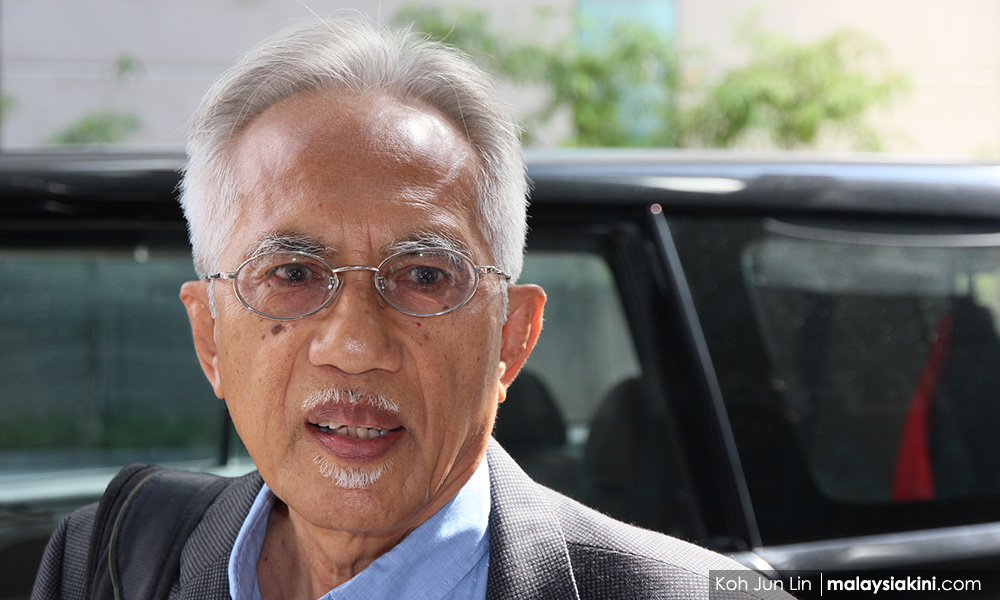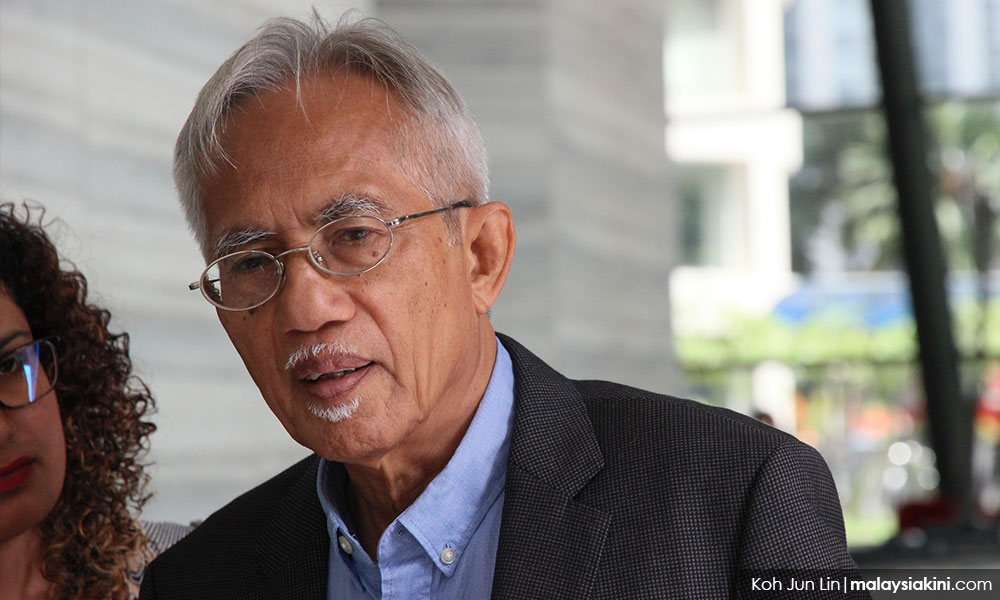
Right now, the men in the news are the prime minister-in-waiting, a.k.a. Anwar Ibrahim, and the spokesperson for the Council of Elders to the Pakatan Harapan government, A Kadir Jasin.
Both are caught in what may be called anomalous situations - positions in seeming contradiction to the ones they have taken in their past.
Now Anwar affects to be putative defender of the royal institution and its concomitants – Malay rights and Islamic religion.
In his pre-May 9 incarnation, he was for needs-based affirmative action for all Malaysians and for an Islam that is race-blind.
Veteran journalist Kadir has not said anything to derogate Malays rights or Islamic religion; he has long been a sentinel on its ramparts.
But in his latest blog posting, Kadir did cast aspersions on the royals, to wit, that for all the ample provisioning the state makes for them, he implies they have not pulled their weight when it came to looking out for the rakyat's interests against imperial overreach by the electorally-ousted Najib Razak government.
This criticism has drawn the nominally egalitarian Anwar's attention.
Anwar rapped Kadir for “disparaging remarks” about the royals and faulted him for “major factual errors” made in the course of comments on royal profligacy at the public trough against implied parsimony in securing the rakyat's interest.

Anwar made these comments about Kadir at a press conference where he wasn't asked his reaction to an oblique comment Kadir made about Anwar in the same post on the royals.
These days, Kadir said Anwar is behaving like a political “commissar”, an epithet borrowed from the Soviet era when the label stood for powerful appointees who scrutinised communist personnel and works for ideological rectitude.
This description must have rankled Anwar; his defence of the Malay rulers is seen as a convenient facade for the discharge of bile against Kadir's equating him to a commissar.
The political static between Anwar and Kadir has a history going back more than two decades.
Kadir was among the “empat budak Melayu” (four Malay urchins) that the late Sanusi Junid sardonically disparaged in 1993 when a coterie of editors and media bigwigs arranged the takeover of a media conglomerate, which included the New Straits Times Press and TV3 in its stable.
The move was funded by a bank whose owner was said to be close to then finance minister Anwar.
The exercise mirrored the growing clout of Umno vice-president Anwar who in 1993 began shaped to contest the deputy president's post occupied by Ghafar Baba.
Leading acolyte
Kadir was a leading acolyte in Anwar's camp as the latter gathered his battalions, in the party and media, for the effort to oust Ghafar.

Anwar was successful in the campaign which ended in Ghafar's humiliation and gave near-irresistible impetus to the ambitious finance minister's drive for the premiership.
However, things turned awry for Anwar in 1998 when Mahathir sacked him from government and Umno and had him jailed for corruption and sodomy.
All that ugly acrimony became water under the bridge as Mahathir and Anwar reunited in the past year to oust Najib, with Mahathir returned last May 9 to a second stint as a reformist prime minister and a royally pardoned Anwar as - many are beginning to feel - an impatient PM-in-waiting.
During the tumultuous phase of Mahathir's humiliation of Anwar in 1998, Kadir was the only one among the “empat budak Melayu” to turn against Anwar.
In the ensuing recriminations, Anwar let on that Ahmad Sebi Abu Bakar, a onetime powerbroker in the world of Malaysian political journalism, had told him Kadir could not write even if his life depended on it.
This is the kind of remark that sticks in the target's craw.
The latest twist in the Anwar-Kadir saga - Kadir's criticism of the royals and putdown of Anwar and the latter's riposte - has a backdrop encrusted with recrimination.
There will be more turns and twists in this saga.
TERENCE NETTO has been a journalist for more than four decades. A sobering discovery has been that those who protest the loudest tend to replicate the faults they revile in others. - Mkini


No comments:
Post a Comment
Note: Only a member of this blog may post a comment.